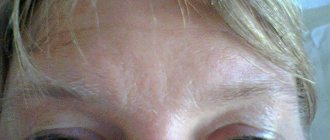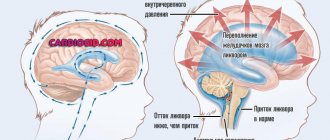Why does a person snore
This happens for several reasons. But mechanically, snoring is a difficult passage of air that passes through the back of the nasopharynx and oropharynx. This is the area in which the airways, tongue, palate and uvula are located. When they close, the air passes through with difficulty and a sound is born - wheezing or deep snoring, which becomes the subject of jokes, irritation and... stopping breathing during sleep. In medical language, this phenomenon is called apnea. Snoring is not only a discomfort for others, which leads to insomnia in loved ones, but also a serious problem for the sleeper himself.
What causes snoring
- The structure of the oral cavity and respiratory tract is a popular cause of apnea and snoring. A curved nasal septum, soft palate, elongated uvula, enlarged tonsils, narrow nasal passages are defects from birth or defects formed after injuries and illnesses. These causes can only be eliminated surgically.
- Age also plays a role. The older we get, the more intensely the muscles in our body lose tone. This also happens with the muscles of the larynx and nasopharynx. In mature women, snoring often appears due to hormonal changes and menopause.
- Snoring during diseases of the ENT organs is also a common occurrence. Swelling of the nasopharynx caused by colds, rhinitis, and sinusitis makes breathing difficult. Cold snoring is a concomitant phenomenon, temporary and passing along with the disease. But there are also ENT pathologies that lead to chronic snoring in an adult: adenoids, polyps and cysts in the larynx and nasopharynx, chronic swelling of the mucous membrane due to prolonged allergies, accumulation of thick and viscous mucus in smokers, tumors. All these reasons can manifest themselves as unpleasant sensations of a foreign body with the inability to swallow, cough up or somehow get rid of it.
- Sleeping position. And this is the simplest and most harmless cause of snoring, which occurs due to the fact that the tongue sinks, blocking the larynx. Snoring in this case can be easily eliminated by simply changing your position.
- Bad habits - alcohol, smoking, use of psychotropic substances - also quickly lead to snoring. Under the influence of chemicals from tobacco smoke, constant swelling and inflammation of the nasopharyngeal mucosa occurs. This leads to a narrowing of the airway and contact of the soft palate with the pharynx. Over time, a smoker's risk of snoring increases. Alcohol and drugs also affect the degree of muscle tension. they are known for their relaxing effect and, when used systematically, affect the muscles of the nasopharynx in the same way as tobacco smoke.
- Excess weight. Have you noticed that obese people with massive deposits of fat in the neck, chest and abdomen often begin to choke even from minimal physical exertion? If you are overweight, fat deposits on the abdomen, chest and neck prevent the chest from making normal movements and fully inhaling and exhaling. This makes it difficult to supply a normal volume of air to an obese person and becomes impossible. Accumulation of fat in the neck leads to a narrowing of the throat, making it difficult to breathe, especially during sleep.
- Disturbances in the endocrine system also relate to the previous point about obesity. After all, sometimes extra pounds are a consequence of a hormonal imbalance in the body, for which the thyroid gland is responsible. Sometimes snoring is caused by a gland that becomes overgrown with nodules, cysts and tumors. This becomes noticeable to the naked eye, and a person develops a goiter.
- Stopping breathing during sleep (apnea) causes not only snoring, but also more serious health problems. Apnea is actually a companion to any snoring, when air cannot circulate freely in the nasopharynx.
What kind of manifestation is this?
Snoring is a manifestation of a pathological condition or a trivial phenomenon that does not provoke inflammatory consequences. At the same time, annoying sounds appear. They are provoked by vibration of weakened elements of the nasopharynx and oral cavity: the uvula along with the soft palate.
Snoring is usually observed during inhalation, although there are cases of this condition also occurring during exhalation. If you know what snoring means and its causes, you can get rid of this symptom and improve the quality of life for yourself and those around you. According to medical parameters, snoring is considered a pathological phenomenon if it occurs for 5 nights a week or more.
In clinical practice, snoring during rest is called rhonchopathy. The disease is classified as a chronic progressive disease, expressed by obstruction of the respiratory organs in the upper part and chronic respiratory failure. These reasons cause a syndromic shift of a compensatory or decompensatory nature.
A decrease in blood oxygenation (oxygen saturation), together with a change in the respiratory regime, becomes the patient’s body’s reaction to the deterioration of ventilation of the respiratory tract. The breathing mode is expressed by a transition to performing the procedure with the mouth instead of standard nasal breathing. People with rhonchopathy during the day, while awake, perform deep and slow breathing movements.
Consequences of snoring
Snoring does not outwardly bother its owner, but it brings a lot of irritation to others, provoking insomnia and negative emotions towards the sleeping snorer. In fact, snoring becomes a truly dangerous phenomenon for the sleeper.
Effects of snoring on the brain
They do not emerge instantly, but develop over months and even years.
The reason for the violations is that during snoring a person may experience frequent pauses in breathing, lasting a few seconds, which is quite enough to cause stress in the body, the release of cortisol, and a lack of blood supply. In combination with osteochondrosis, which is often the cause of snoring, a regular interruption in the supply of oxygen can lead to headaches, a feeling of weakness in the morning, impaired concentration, decreased performance, and vascular diseases. Heart attack and stroke are dangerous consequences.
They do not happen instantly and can be avoided if you pay attention to the snoring of a loved one or your own in time. Some people wake up from their snoring.
Snoring is dangerous for the nervous system
Oxygen starvation and frequent night awakenings due to snoring are a direct path to insomnia or light sleep. The brain responds to every stoppage or failure of breathing with a signal to wake up. And since sleep has successive phases, if they are constantly disrupted, neither the brain nor the nervous system simply has time to recover. The brain does not reach the deep phase of sleep, which means that proper rest, rebooting and muscle relaxation, lowering blood pressure and slowing the heartbeat do not occur. This is a direct path to neuroses and the development of psychological problems. In addition, few people will like constant reproaches from loved ones that a person snores.
Over time, depression, psychological discomfort and stress become companions to snoring.
The effect of snoring on the heart and blood vessels
Night awakenings and restless sleep activate the sympathetic nervous system. As a result, apnea begins, blood pressure rises, the pulse quickens, sometimes heart rhythm disturbances occur, and arrhythmia develops.
Heart rhythm disturbances and arrhythmia are dangerous because they lead to the formation of clots in the blood, which turn into blood clots
Impaired breathing leads to a sharp decrease in pressure inside the chest. The airways are blocked, and the chest continues to make breathing movements in vain, sucking in air that is actually not there. A “vacuum trap” is created into which the blood enters. The limbs and internal organs suffer from a short-term lack of blood, while the heart is overloaded with fluid. Thus, snoring becomes a cause of heart disease, or, on the contrary, develops in those who already have diseases. Therefore, you should be more than wary of your snoring or the snoring of your loved ones.
Symptoms of rhonchopathy
Anti-snoring devices
If the disorder is pathological, it is accompanied by respiratory failure. When a person begins to snore at night and wakes up from short-term cessation of breathing, then this is mixed with:
- chronic fatigue syndrome;
- increased blood pressure in the morning;
- drowsiness throughout the day;
- metabolic disease;
- development of pulmonary obstruction.
Snoring causes brain hypoxia, especially at night. Irreversible processes occur in the circulatory system. You can stop the pathological process by visiting a doctor and correctly diagnosing the cause of ronchopathy.
No ads 2
How to get rid of snoring
- Endless pushing of a sleeping snorer is not able to bring relief and cure snoring, nervous tics and showdowns - too. First of all, it is important to realize the seriousness of the problem and take action.
- Pay attention to the condition of the ENT organs and provide them with assistance if the cause of snoring is located in them. You can relieve swelling of the mucous membranes with antihistamine drops: Momat Rino, Desrinitis, Nasonex, Avamis. Experts recommend doing periodic inhalations with essential oils and moisturizing the mucous membrane.
- Avoid dryness in the bedroom. Dry air often causes sleep disturbances and snoring. Regular ventilation, maintaining normal humidity in the room.
- If you are objectively overweight, then you should take charge of your health and start getting rid of it. To do this, you don’t need to lean heavily on physical training, but it’s enough to adjust your diet at the first stage. Excess weight and active physical activity can be harmful. It is best to engage in sports after the weight has noticeably decreased.
- Avoid alcohol and nicotine at least 2-4 hours before bedtime.
- Review your bedding: choose an orthopedic mattress and pillow, choose bedding from suitable fabrics. Natural ones are best suited, as they allow air to pass through easily, providing ventilation to the body during sleep.
- In order to strengthen the muscles of the larynx and nasopharynx, you need to do special sound exercises and sing. Of course, this is not a reason to sign up with a vocal teacher, but home singing is quite suitable for training and a good mood.
- Vegetable oil - coconut, sea buckthorn, any that can be bought at the pharmacy. Before going to bed, you can gargle with a small amount.
- If the cause of snoring is a global disorder or is a consequence of an illness, it is important to begin treating the underlying cause. Sometimes this requires determination and surgical intervention.
- Nipples, clamps, and mouthguards from the “anti-snoring” series can bring temporary relief, but do not always lead to a positive result, because during sleep they can simply fall out, and sleeping with the awareness of a foreign body in the mouth can be more traumatic for the nervous system and give rise to fears.
Take care of yourself and be healthy!
Treatment options
You can overcome a sleep disorder yourself, at home, using various devices. Medications and folk remedies help to escape from chronic rhonchopathy. Treatment for snoring is aimed at restoring normal airway patency. The fight, first of all, is carried out against the causes of the disease.
Conservative therapy
You can completely eliminate snoring or reduce its severity:
- weight loss;
- refusal to take medications or alcohol before bedtime;
- gymnastic exercises that increase the tone of the muscles of the pharynx and uvula;
- creating comfortable conditions for sleep, correct body position;
- using chin lifts to sleep with your mouth closed;
- timely treatment of inflammation of the throat and nose;
- CPAP therapy.
Special stickers or clips on the sleep wings will help prevent snoring during sleep. They help make nasal breathing easier. A mouth guard is inserted into the mouth before going to bed, which increases the clearance in the pharynx.
It is advised to get rid of pathological vibration using a mask. The device helps normalize pressure in the respiratory tract and prevents the walls of the pharynx from collapsing. Nasonex, Slipex, Asonor sprays are used to tone the muscle tissue of the pharynx.
Folk remedies can be used to combat swelling in the throat. Gargling with warm water and salt, infusion of calendula in half with oak tree, and mint oil is used in combination with other remedies.
No ads 3
Surgical intervention
Surgical treatment begins when the lumen of the pharynx is closed:
- adenoids;
- malignant tumors;
- curvature of the nasal septum.
In difficult cases, it is recommended to perform uvulopalatopharyngoplasty with permanent suturing of the palatal arches with the tissues located in the interarch region. The operation leads to strengthening of the lateral walls of the pharynx
Gentle techniques involve surgical operations with cryodestruction, correction of the soft palate with a laser or radiofrequency cauterization, and removal of excess mucous membrane of the soft palate. Pharyngostenosis may be used.
Treatment of snoring with surgery is one of the methods of getting rid of the problem
Tips to help you stop snoring or reduce the frequency of snoring
To stop disturbing yourself and other people’s sleep at night, it is recommended to go to a medical facility and undergo an examination. If no serious causes are found, follow some tips:
- To reduce snoring, use a comfortable pillow. Patients stop snoring when an additional pillow is placed under their neck.
- Dry air contributes to snoring. It is better to ventilate the room for half an hour before going to bed.
- A healthy lifestyle promotes good quality sleep. Smokers and people who drink alcohol suffer from this disease.
- For a good restful sleep, it is better to turn on your side.
To reduce the frequency of snoring, it is recommended to regularly perform appropriate exercises.
Causes
There is no single reason for the occurrence of such breathing disorders. The following factors can trigger snoring:
- Pathologies of the larynx, nose or pharynx;
- Increased dimensions of the tongue, uvula;
- Strongly sagging soft palate;
- Decreased muscle tone of the pharyngeal frame.
The last factor is associated with the following provocateurs:
- Obesity;
- Alcoholism;
- Age-related changes;
- Use of sleeping pills;
- Smoking.
Obesity
Alcoholism
Use of sleeping pills
Smoking
Psychological vector
The psychosomatics of snoring is a new area of psychology research. Experts in the field of psychosomatic research indicate new reasons for the development of snoring. The psychosomatics of snoring is based on the presence of mental and emotional blockages.
When feelings and emotions overwhelm a person, he tries to suppress them. Negative energy accumulates in the body, which spills out during sleep.
Secretive people often abandon their own opinions when accepting other people's decisions. They rarely express a point of view that is acceptable to them. But at night, the human psyche splashes out unexpressed emotions through snoring.
Important! Snoring when breathing may indicate a reluctance to part with familiar patterns or stereotypes. Psychosomatics recommends using auto-training to relieve discomfort.
Drugs that cause discomfort
Medicines that cause this phenomenon include:
- Sleeping pills that provide sound and long sleep;
- Muscle relaxants – medications to reduce muscle tone;
- Tranquilizers that relieve stress and anxiety;
- Narcotics to block severe pain.
If you discover a provoking effect of medications prescribed by your doctor on the development of snoring, you should definitely inform your doctor about the problem that has arisen.
Bad habits
Smoking and drinking alcohol-containing drinks provokes a decrease in the tone of the muscle mass in the posterior segment of the throat. This increases the risk of snoring. Drinking alcohol helps relax the respiratory muscles and has an inhibitory effect on the process of brain regulation of breathing. Such a reaction provokes the interaction of pharyngeal structures.
Impact of obesity
In people who reach 40 years of age, snoring begins to appear due to excess weight. Over 50% of patients with a similar diagnosis are susceptible to this condition during sleep, along with periodic loss of breathing.
These people have problems with cardiology and blood vessels:
- Chronic hypertension;
- Heart rhythm dysfunction;
- Developing stenosis in the coronary capillaries.
The mechanism for the appearance of the symptom in this case is associated with the deposition of visceral fat, which is located between the tissues of the nasopharynx, especially in the area of its lateral walls. This causes a narrowing of the airway, making breathing difficult. When, against the background of this process, inflammatory reactions also appear inside the mucous membrane of the nasopharynx or palatine tonsils, the unpleasant sounds intensify significantly, and apnea is observed even more often.












